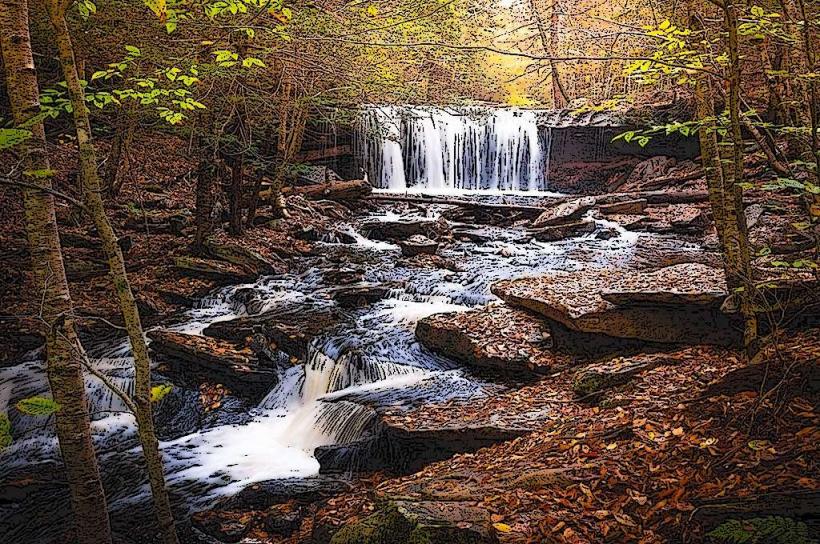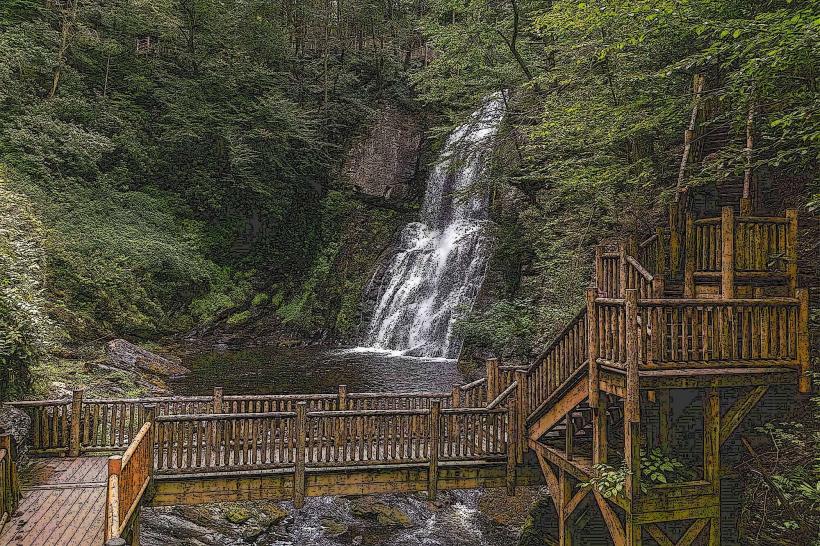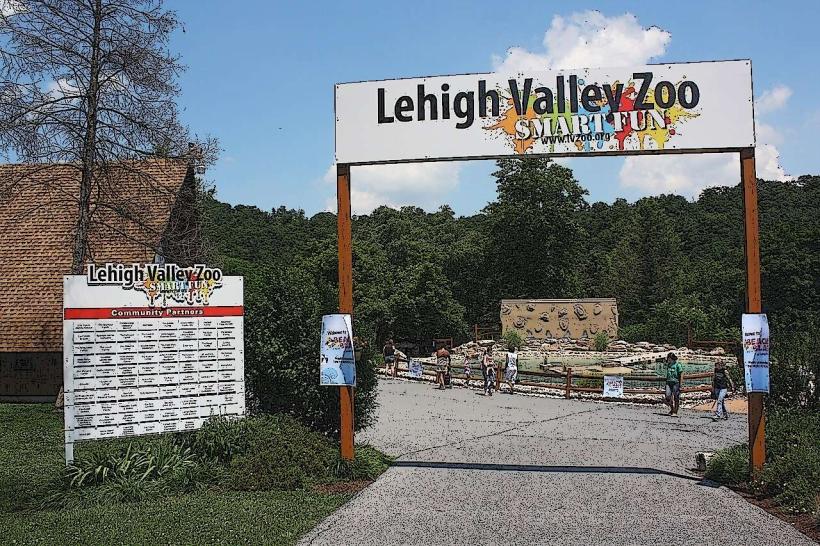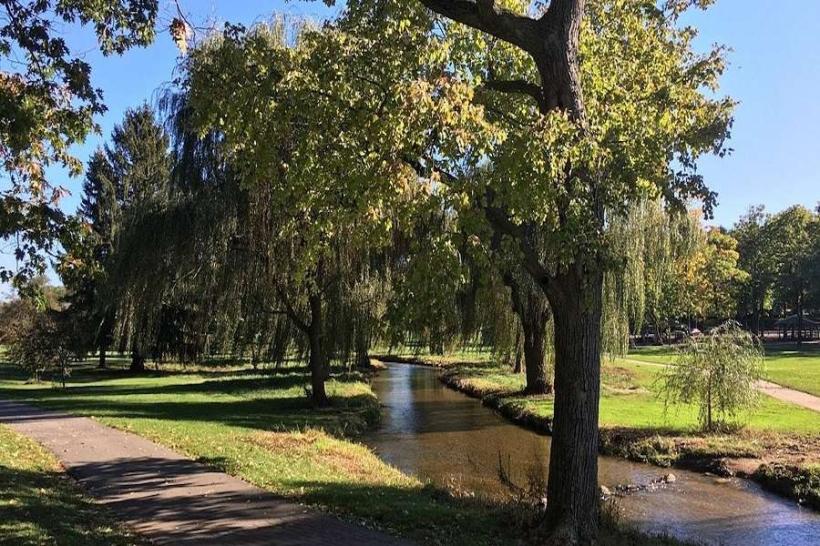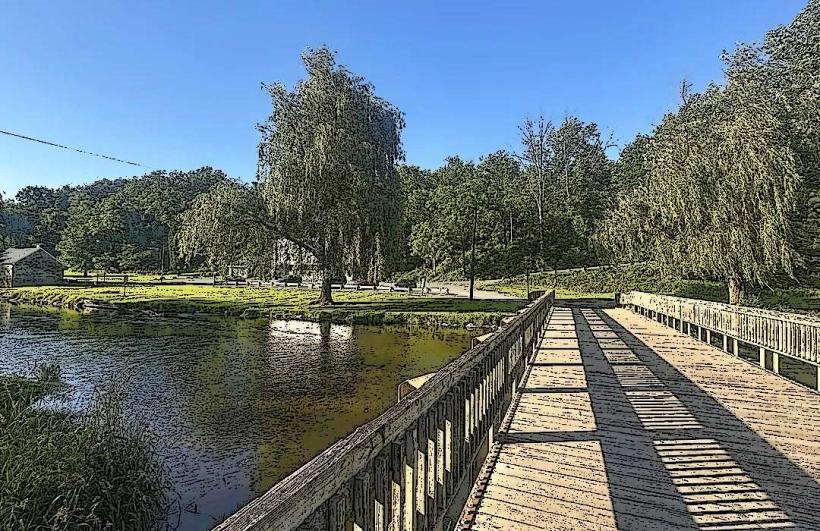Information
Landmark: Hawk Mountain SanctuaryCity: Allentown
Country: USA Pennsylvania
Continent: North America
Hawk Mountain Sanctuary, Allentown, USA Pennsylvania, North America
Here is a detailed overview of Hawk Mountain Sanctuary, including its history, natural significance, visitor experience, and conservation impact:
1. Overview and Historical Significance
Hawk Mountain Sanctuary is a nature preserve and scientific research center located in Kempton, Pennsylvania, on the Kittatinny Ridge, a part of the Appalachian Mountain chain. Spanning over 2,600 acres, the sanctuary was founded in 1934 by Rosalie Edge, a pioneering conservationist. At the time, raptors were widely persecuted, and Hawk Mountain was a popular site for shooting migrating hawks.
Rosalie Edge leased the land, banned hunting, and employed a warden to protect the birds. In doing so, she established the first sanctuary in the world dedicated to the protection of birds of prey. Her vision led to the creation of a globally significant research, education, and conservation facility that has operated continuously for over 90 years.
2. Raptor Migration and Research
Hawk Mountain lies along a major migratory flyway for raptors in eastern North America. The Kittatinny Ridge acts as a natural corridor that creates thermals and updrafts, helping birds conserve energy during long-distance flights.
Key Migration Periods:
Fall Migration: Mid-August to mid-December (peak viewing in September and October)
Spring Migration: March to early May (less dramatic, but still visible)
Raptors Seen Regularly:
Broad-winged Hawk (thousands in a single day during peak)
Sharp-shinned Hawk
Red-tailed Hawk
Cooper’s Hawk
Bald Eagle
Golden Eagle
American Kestrel
Northern Harrier
Osprey
Peregrine Falcon
Merlin
Turkey Vulture
Black Vulture
Red-shouldered Hawk
Rough-legged Hawk
Northern Goshawk
The sanctuary is the site of the longest-running raptor migration count in the world, with daily counts conducted by trained observers since 1934. These records are vital for tracking long-term trends in bird populations and are used internationally for conservation policy and research.
3. Trail System and Lookouts
Hawk Mountain offers over 8 miles of trails, ranging from easy walks to challenging mountain hikes. All trails are well-maintained, marked, and integrated into the forest and ridge landscape.
Notable Trails and Lookouts:
South Lookout (Easy)
900-foot ADA-accessible trail with a level surface
Popular with families, seniors, and those with limited mobility
Offers sweeping views and educational displays
North Lookout (Moderate)
0.75-mile hike with a 300-foot elevation gain
Offers a panoramic 200-degree view from atop the ridge
Best spot for peak raptor sightings during fall
River of Rocks Trail (Challenging)
Loop trail with steep descents
Passes through an Ice Age-era boulder field
Rugged and rocky, requires careful footing
Skyline Trail (Strenuous)
Ridgetop trail involving rock scrambling
Links with the Appalachian Trail
Suitable for experienced hikers seeking solitude and adventure
4. Visitor Center and Facilities
The Visitor Center is open daily from 9:00 AM to 5:00 PM, except on Thanksgiving, Christmas, and New Year's Day. The building serves as the main hub for orientation, education, and amenities.
Key Features:
Natural history exhibits
Gift shop with books, optics, and nature-themed items
Clean restrooms
Trail maps and migration info
Knowledgeable staff and volunteers
Accessibility: The Visitor Center and the South Lookout Trail are wheelchair-accessible. Other trails are steep and rocky.
5. Admission and Membership
Daily Admission Fees:
Adults (13–64): $10
Seniors (65+): $7
Children (6–12): $5
Children under 6: Free
Members: Free year-round access
Membership Options:
Individual and family memberships available
Include unlimited visits, program discounts, and early registration for events
6. Educational Programs
Hawk Mountain runs a wide array of educational initiatives aimed at connecting the public with conservation science and nature appreciation.
Programs Include:
Guided nature walks
Raptor identification workshops
Wildlife photography sessions
Children’s summer camps
School field trips
Teacher training programs
The Acopian Center for Conservation Learning, part of Hawk Mountain’s facilities, hosts:
Internships and residencies for college students and postgraduates
Professional development for conservation biologists
Research on raptor ecology, migration, and global conservation issues
7. Conservation Impact
Hawk Mountain Sanctuary’s work extends beyond public education and birdwatching.
Contributions:
Scientific publications and data collection on migratory birds
Training the next generation of global conservation leaders
Habitat restoration and land protection
Collaborations with international raptor monitoring networks
Public advocacy for bird and habitat conservation
8. Visiting Tips
Best Time to Visit: September through mid-October for peak hawk flights
What to Bring: Binoculars, water, sturdy shoes, layers (weather on the ridge can change quickly)
When to Arrive: Early in the day for best parking and less crowded trails
What Not to Do: Pets, smoking, drones, alcohol, and littering are all prohibited
9. Local Area and Nearby Attractions
Kempton and the surrounding Berks County region offer a rural, scenic experience with other points of interest:
Crystal Cave – Pennsylvania’s first show cave, offering guided tours
Appalachian Trail – Access points near the sanctuary
Local farms and markets – Seasonal produce, cider, and crafts
Historic railroad rides – Nearby heritage trains offer scenic tours
Location and Contact
Address:
Hawk Mountain Sanctuary
1700 Hawk Mountain Road
Kempton, PA 19529
In summary, Hawk Mountain Sanctuary is not just a birdwatching site, but a living, breathing example of how conservation, education, and science come together. It offers stunning natural beauty, deeply engaging programming, and an opportunity to witness one of nature’s most impressive spectacles-birds of prey soaring across the sky in great numbers.

